Jennifer Andersen
 Jennifer Andersen, Ph.D., previously worked as a patient financial counselor where she saw the effects of health disparities in underserved communities. Her experiences working with patients sparked a curiosity about the causes of health disparities, leading her to return to school to pursue higher education. A first-generation non-traditional college student, she entered the University of Nebraska-Lincoln, where she earned her Bachelor of Arts in psychology (with distinction, 2015) and a master’s (2017) and doctorate (2020) in sociology with a focus on health and medicine. In July 2020, Dr. Andersen began a postdoctoral fellowship at UAMS in the College of Medicine’s Office of Community Health and Research. After four months as a postdoctoral fellow, she was appointed assistant professor in UAMS’ College of Medicine. Her research focuses on how interventions utilizing medical technology (e.g. telemedicine, remote monitoring) can improve health care access and health outcomes in underserved and minority communities, as well as examining how the social determinants of health affect health care access and health outcomes, particularly for people with cardiometabolic disease (e.g., diabetes) and cancer in rural and minority populations.
Jennifer Andersen, Ph.D., previously worked as a patient financial counselor where she saw the effects of health disparities in underserved communities. Her experiences working with patients sparked a curiosity about the causes of health disparities, leading her to return to school to pursue higher education. A first-generation non-traditional college student, she entered the University of Nebraska-Lincoln, where she earned her Bachelor of Arts in psychology (with distinction, 2015) and a master’s (2017) and doctorate (2020) in sociology with a focus on health and medicine. In July 2020, Dr. Andersen began a postdoctoral fellowship at UAMS in the College of Medicine’s Office of Community Health and Research. After four months as a postdoctoral fellow, she was appointed assistant professor in UAMS’ College of Medicine. Her research focuses on how interventions utilizing medical technology (e.g. telemedicine, remote monitoring) can improve health care access and health outcomes in underserved and minority communities, as well as examining how the social determinants of health affect health care access and health outcomes, particularly for people with cardiometabolic disease (e.g., diabetes) and cancer in rural and minority populations.
Email: JAAndersen@uams.edu
Britni Ayers
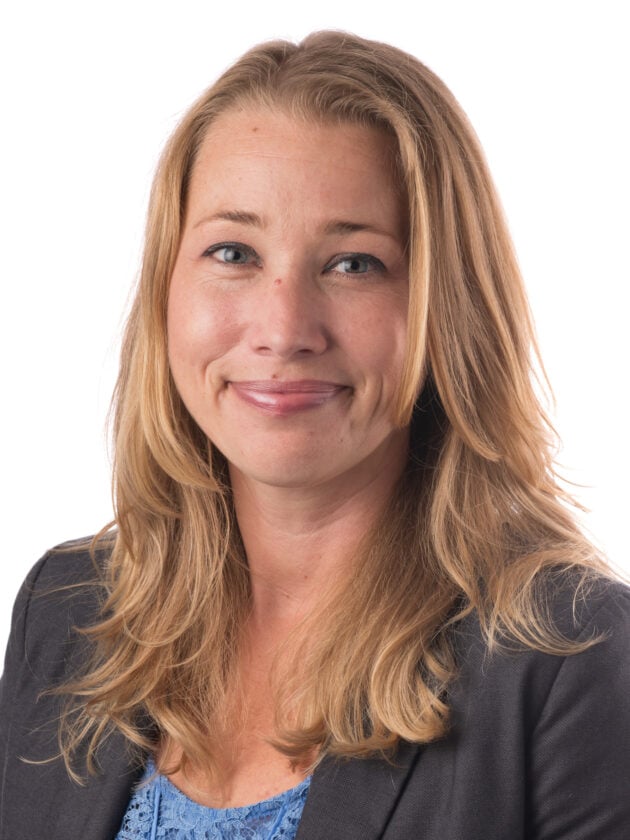 Britni Ayers, Ph.D., is an assistant professor in the College of Medicine at the Office of Community Health and Research at the UAMS Northwest Regional Campus. Prior to coming to UAMS as an assistant professor, she spent 10 years studying maternal and child health through nonprofit organizations as both a lactation advisor and a midwifes apprentice. Additionally, her degrees and research areas of focus have made her particularly effective in maternal health research among racial and/or ethnic minority population. She has dedicated her academic career to address maternal and infant health among low-income and/or racial and ethnic minority women. As part of this work, she has successfully conducted and published preliminary research on maternal and infant feeding beliefs and experiences among the Marshallese population.
Britni Ayers, Ph.D., is an assistant professor in the College of Medicine at the Office of Community Health and Research at the UAMS Northwest Regional Campus. Prior to coming to UAMS as an assistant professor, she spent 10 years studying maternal and child health through nonprofit organizations as both a lactation advisor and a midwifes apprentice. Additionally, her degrees and research areas of focus have made her particularly effective in maternal health research among racial and/or ethnic minority population. She has dedicated her academic career to address maternal and infant health among low-income and/or racial and ethnic minority women. As part of this work, she has successfully conducted and published preliminary research on maternal and infant feeding beliefs and experiences among the Marshallese population.
Email: BLAyers@uams.edu
Jennifer Callaghan-Koru
Jennifer Callaghan-Koru joined the Department of Internal Medicine as an associate professor in 2022. She holds a doctorate and a Master of Health Science in public health from the Johns Hopkins University Bloomberg School and has previously held full-time faculty appointments at Johns Hopkins and the University of Maryland, Baltimore County. Her research is focused on improving maternal and child health through the application of implementation science methods to support quality improvement and innovative service delivery. She has led implementation research to study and support maternal and child health programs in multiple countries and is an alumnus of the National Institutes of Health’s Training Institute on Dissemination and Implementation Research in Health. Dr. Callaghan-Koru has expertise in mixed-methods research and program evaluation and extensive experience with semi-structured interview and survey research methods. Her research and public health work have been funded by the National Institutes of Health, the Health Resources and Services Administration, and the United States Agency for International Development.
Email: jck@uams.edu
Emily English
 Emily English, Ph.D., M.P.H., M.P.S., is faculty in the UAMS Office of Community Health and Research and an assistant professor in the Department of Internal Medicine at the University of Arkansas for Medical Sciences. She received her doctorate in public health leadership in 2018 and her Master of Public Health in 2009 from the College of Public Health at UAMS and her Master of Public Service from the Clinton School of Public Service in 2009. Prior to joining the Office of Community Health and Research, Dr. English served as the director of the Access to Healthy Foods Research Group at Arkansas Children’s Research Institute in the Department of Pediatrics at UAMS. As a faculty member, Dr. English leads community-based research and programming aimed at increasing access to healthy foods for children and families to improve nutrition-related health. This includes the development, delivery, and evaluation of individual and environmental-level nutrition interventions with community partners across three major food access systems: school and early childhood environments, the charitable food system, and the local food system. Dr. English also serves as the community engagement core associate director in the Center for Childhood Obesity Prevention at Arkansas Children’s Research Institute. Across all of this work, Dr. English is committed to ensuring that our food system is sustainable, equitable, and accessible for all.
Emily English, Ph.D., M.P.H., M.P.S., is faculty in the UAMS Office of Community Health and Research and an assistant professor in the Department of Internal Medicine at the University of Arkansas for Medical Sciences. She received her doctorate in public health leadership in 2018 and her Master of Public Health in 2009 from the College of Public Health at UAMS and her Master of Public Service from the Clinton School of Public Service in 2009. Prior to joining the Office of Community Health and Research, Dr. English served as the director of the Access to Healthy Foods Research Group at Arkansas Children’s Research Institute in the Department of Pediatrics at UAMS. As a faculty member, Dr. English leads community-based research and programming aimed at increasing access to healthy foods for children and families to improve nutrition-related health. This includes the development, delivery, and evaluation of individual and environmental-level nutrition interventions with community partners across three major food access systems: school and early childhood environments, the charitable food system, and the local food system. Dr. English also serves as the community engagement core associate director in the Center for Childhood Obesity Prevention at Arkansas Children’s Research Institute. Across all of this work, Dr. English is committed to ensuring that our food system is sustainable, equitable, and accessible for all.
Email: ESENGLISH@uams.edu
Holly Felix
Holly Felix, P.h.D., M.P.A., has a doctorate in public policy and a master’s in public administration. A significant portion of her scholarship has focused on identifying and addressing disparities in access to health care services and health outcomes through quantitative and qualitative research methods and with a community-engaged approach. For the last several years, she has collaborated extensively with Pearl McElfish, Ph.D., to document, understand and address the disproportion burden of type 2 diabetes mellitus among Native Hawaiian and other Pacific Islanders, particularly the Marshallese. She has been an investigator on several randomized control trials examining the effectiveness of family models of care among the collectivistic Marshallese community of northwest Arkansas. Findings from her research have been disseminated through numerous presentations at national conferences, and to date, 91 peer review publications.
Email: FelixHolly@uams.edu
Emily Hallgren
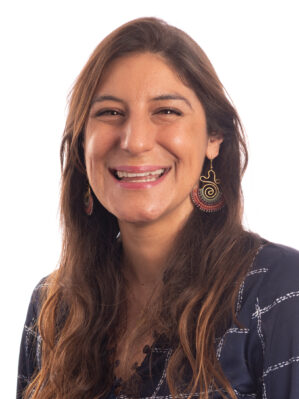 Emily Hallgren, Ph.D., is an assistant professor at the Office of Community Health and Research and the Winthrop P. Rockefeller Cancer Institute at UAMS. Her work examines the relationship between socioeconomic status and health. She is especially interested in cancer’s financial toxicity and employment effects for both cancer survivors and cancer caregivers, with a special interest in rural populations. Dr. Hallgren’s doctoral work in Sociology at the University of Illinois at Chicago examined financial hardship and employment outcomes among socioeconomically diverse women cancer survivors in rural America. She previously worked at UAMS as a research associate, co-leading community-based participatory research with the Marshallese community in Arkansas to identify and address health disparities. Dr. Hallgren’s long-term goal is to leverage research findings to improve health, quality of life, and economic well-being for all people.
Emily Hallgren, Ph.D., is an assistant professor at the Office of Community Health and Research and the Winthrop P. Rockefeller Cancer Institute at UAMS. Her work examines the relationship between socioeconomic status and health. She is especially interested in cancer’s financial toxicity and employment effects for both cancer survivors and cancer caregivers, with a special interest in rural populations. Dr. Hallgren’s doctoral work in Sociology at the University of Illinois at Chicago examined financial hardship and employment outcomes among socioeconomically diverse women cancer survivors in rural America. She previously worked at UAMS as a research associate, co-leading community-based participatory research with the Marshallese community in Arkansas to identify and address health disparities. Dr. Hallgren’s long-term goal is to leverage research findings to improve health, quality of life, and economic well-being for all people.
Email: EHallgren@uams.edu
Chris Long
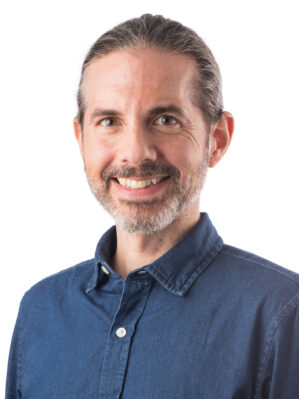 Christopher Long is an assistant professor of medicine at the University of Arkansas for Medical Sciences. Dr. Long holds a doctorate in psychology with more than 15 years’ program evaluation experience across the fields of education, psychology, consumer behavior, and health, including evaluating multiple community-based programs with Hispanic/Latino and Pacific Islander communities. Dr. Long has also served as an evaluator for the U.S. Department of Education’s McNair Scholars Program. He serves as lead evaluator for six CDC-funded chronic disease prevention/management programs. In addition to program evaluation, Dr. Long leads a research program focused on improving access to healthy foods for food insecure households and rural communities and effective communication of study results to participants in health research. He is currently principal investigator for USDA- and NIH-funded projects examining the effects of home delivery of diabetes appropriate food and educational materials on improving health outcomes for food pantry clients with type 2 diabetes. He is also principal investigator for an NIH-funded project evaluating the effects of a comprehensive nutrition intervention in rural Arkansas school districts.
Christopher Long is an assistant professor of medicine at the University of Arkansas for Medical Sciences. Dr. Long holds a doctorate in psychology with more than 15 years’ program evaluation experience across the fields of education, psychology, consumer behavior, and health, including evaluating multiple community-based programs with Hispanic/Latino and Pacific Islander communities. Dr. Long has also served as an evaluator for the U.S. Department of Education’s McNair Scholars Program. He serves as lead evaluator for six CDC-funded chronic disease prevention/management programs. In addition to program evaluation, Dr. Long leads a research program focused on improving access to healthy foods for food insecure households and rural communities and effective communication of study results to participants in health research. He is currently principal investigator for USDA- and NIH-funded projects examining the effects of home delivery of diabetes appropriate food and educational materials on improving health outcomes for food pantry clients with type 2 diabetes. He is also principal investigator for an NIH-funded project evaluating the effects of a comprehensive nutrition intervention in rural Arkansas school districts.
Email: CRLong2@uams.edu
Ramey Moore
Ramey Moore, Ph.D., is an assistant professor in the Office of Community Health and Research at the UAMS Northwest Regional Campus. Dr. Moore holds a doctorate in anthropology with an emphasis on qualitative medical and environmental anthropology. He has conducted research in Arkansas with the Marshallese and Hispanic communities, on environmental activism in the Ozarks, and medical adherence in Kazakhstan. In his current role, he focuses on health care access, inequalities in care, and on the social ecology of health. He is also conducting research on the concept of hesitancy related to the COVID-19 vaccine. A major aspect of this research is centered in Marshallese communities in the United States, and especially concerned with Marshallese experiences of health, inequalities in health care access and outcomes, and structural and social barriers to health care. Dr. Moore has extensive research with qualitative research methods, rapid ethnography, and is currently building experience with implementation science. It is Dr. Moore’s goal to improve health care access for all communities in the United States, and to build a more just, inclusive, and equitable world.
Email: RameyMoore@uams.edu
Rachelle Narcisse
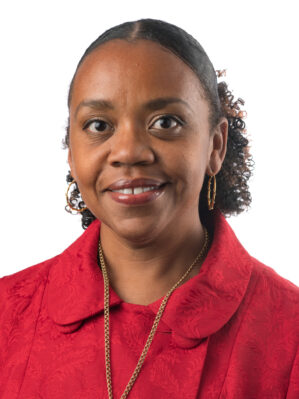 Marie-Rachelle Narcisse, Ph.D., MS.c., CHCQM, FABQAURP, is an assistant professor at the Department of Internal Medicine and a senior data analyst at the Office of Community Health and Research. Dr. Narcisse holds a doctorate in public health with an emphasis on health care management and a master’s in economics with a dual specialization in economic evaluation of programs and international economics and finance. She has additional training in survey methods, clinical research, and implementation research. She has extensive experience in quantitative data analysis, quality metrics, and health outcomes research. She has analyzed health care claims, population, and clinical data and used advanced econometrics methods to study health disparities in health outcomes, health care costs, technology assessment, and policy evaluation. She is interested in applying systems dynamics and agent-based modeling to study disparities in sleep health. Findings from her research have been disseminated in 40 peer-reviewed publications.
Marie-Rachelle Narcisse, Ph.D., MS.c., CHCQM, FABQAURP, is an assistant professor at the Department of Internal Medicine and a senior data analyst at the Office of Community Health and Research. Dr. Narcisse holds a doctorate in public health with an emphasis on health care management and a master’s in economics with a dual specialization in economic evaluation of programs and international economics and finance. She has additional training in survey methods, clinical research, and implementation research. She has extensive experience in quantitative data analysis, quality metrics, and health outcomes research. She has analyzed health care claims, population, and clinical data and used advanced econometrics methods to study health disparities in health outcomes, health care costs, technology assessment, and policy evaluation. She is interested in applying systems dynamics and agent-based modeling to study disparities in sleep health. Findings from her research have been disseminated in 40 peer-reviewed publications.
Email: MNJeanLouis@uams.edu
Rachel Purvis
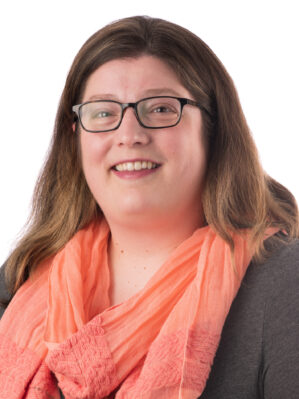 Rachel S. Purvis, Ph.D., is an assistant professor in the Office of Community Health and Research in the College of Medicine at the UAMS Northwest Regional Campus. Dr. Purvis earned her doctorate with a focus on indigenous populations from the University of Mississippi and was awarded the Cassius Marcellus Clay Fellowship from the Gilder Lehrman Center for the Study of Slavery, Resistance, and Abolition at Yale University in 2012. Prior to joining UAMS in 2014, Dr. Purvis spent nine years engaged in indigenous history and cultural studies focused on the intersection of race, class, and policy. At UAMS, Dr. Purvis has conducted qualitative research on more than ten large qualitative and mixed methods studies, has seven years of experience with community-based participatory research, and has managed research projects and protocols. She also completed qualitative health research training at Emory University. Dr. Purvis has published more than 30 qualitative papers on Marshallese health disparities and dissemination research in collaboration with Dr. McElfish. More recently, Dr. Purvis has published on research ethics with special populations affected by historical trauma and developed a tool kit to assist researchers with dissemination planning and activities that are available to researchers who need technical assistance with sharing research findings.
Rachel S. Purvis, Ph.D., is an assistant professor in the Office of Community Health and Research in the College of Medicine at the UAMS Northwest Regional Campus. Dr. Purvis earned her doctorate with a focus on indigenous populations from the University of Mississippi and was awarded the Cassius Marcellus Clay Fellowship from the Gilder Lehrman Center for the Study of Slavery, Resistance, and Abolition at Yale University in 2012. Prior to joining UAMS in 2014, Dr. Purvis spent nine years engaged in indigenous history and cultural studies focused on the intersection of race, class, and policy. At UAMS, Dr. Purvis has conducted qualitative research on more than ten large qualitative and mixed methods studies, has seven years of experience with community-based participatory research, and has managed research projects and protocols. She also completed qualitative health research training at Emory University. Dr. Purvis has published more than 30 qualitative papers on Marshallese health disparities and dissemination research in collaboration with Dr. McElfish. More recently, Dr. Purvis has published on research ethics with special populations affected by historical trauma and developed a tool kit to assist researchers with dissemination planning and activities that are available to researchers who need technical assistance with sharing research findings.
Email: RSPurvis@uams.edu
Mario Schootman
 Mario Schootman, Ph.D., is a professor of medicine and director of research in the Office of Community Health and Research, and vice chair of the Department of Internal Medicine at UAMS. He was trained as a social and clinical epidemiologist while receiving his doctorate from the University of Iowa (1993). He has over 25 years of experience designing and conducting clinical and community-based studies focused on health disparities. He was professor of epidemiology and co-leader of the Siteman Cancer Center Prevention & Control program at Washington University School of Medicine (1999-2013). From 2013-2018, he was an endowed chair in the College for Public Health and Social Justice, professor of epidemiology, associate dean for research, and director of the doctoral program in Public Health Studies at Saint Louis University. Prior to joining UAMS in 2022, he was the senior director of clinical analytics and insights at SSM Health, a large health care system with 23 hospitals based out of St. Louis, Missouri. In this capacity, he developed the infrastructure for data science and business intelligence related to quality of care and patient safety. He has published over 250 peer-reviewed manuscripts, many of which are focused on disparities, which have been cited over 12,000 times. He has been the principal investigator of several National Institutes of Health R01 grants and many other grants during his academic career. It is Dr. Schootman’s professional goal to conduct research to reduce health disparities and to enhance the success of junior investigators at UAMS.
Mario Schootman, Ph.D., is a professor of medicine and director of research in the Office of Community Health and Research, and vice chair of the Department of Internal Medicine at UAMS. He was trained as a social and clinical epidemiologist while receiving his doctorate from the University of Iowa (1993). He has over 25 years of experience designing and conducting clinical and community-based studies focused on health disparities. He was professor of epidemiology and co-leader of the Siteman Cancer Center Prevention & Control program at Washington University School of Medicine (1999-2013). From 2013-2018, he was an endowed chair in the College for Public Health and Social Justice, professor of epidemiology, associate dean for research, and director of the doctoral program in Public Health Studies at Saint Louis University. Prior to joining UAMS in 2022, he was the senior director of clinical analytics and insights at SSM Health, a large health care system with 23 hospitals based out of St. Louis, Missouri. In this capacity, he developed the infrastructure for data science and business intelligence related to quality of care and patient safety. He has published over 250 peer-reviewed manuscripts, many of which are focused on disparities, which have been cited over 12,000 times. He has been the principal investigator of several National Institutes of Health R01 grants and many other grants during his academic career. It is Dr. Schootman’s professional goal to conduct research to reduce health disparities and to enhance the success of junior investigators at UAMS.
Email: MSchootman@uams.edu
Sheldon Riklon
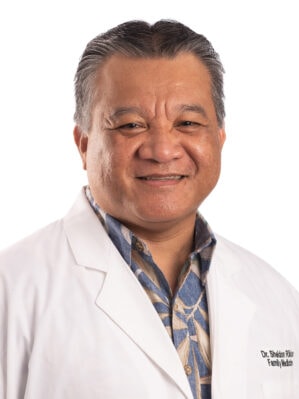 Dr. Sheldon Riklon, M.D., is an associate professor in the Department of Family and Preventive Medicine and a co-investigator in the Office of Community Health and Research at the UAMS Northwest Regional Campus. He is the inaugural recipient of the Peter O. Kohler, M.D., Endowed Distinguished Professorship in Health Disparities and the 2021 Dr. Edith Irby Jones Excellence in Diversity and Inclusion Lifetime Achievement Award. Dr. Riklon serves most of his time in clinical care, with roles at Community Clinic in Springdale as well as the UAMS Health North Street Clinic and the UAMS Health Family Medical Center in Fayetteville, but also works with the UAMS Office of Community Health and Research in community-engaged research activities with the Marshallese community. His deep understanding of the Marshallese culture and language serve to strengthen those research efforts tremendously.
Dr. Sheldon Riklon, M.D., is an associate professor in the Department of Family and Preventive Medicine and a co-investigator in the Office of Community Health and Research at the UAMS Northwest Regional Campus. He is the inaugural recipient of the Peter O. Kohler, M.D., Endowed Distinguished Professorship in Health Disparities and the 2021 Dr. Edith Irby Jones Excellence in Diversity and Inclusion Lifetime Achievement Award. Dr. Riklon serves most of his time in clinical care, with roles at Community Clinic in Springdale as well as the UAMS Health North Street Clinic and the UAMS Health Family Medical Center in Fayetteville, but also works with the UAMS Office of Community Health and Research in community-engaged research activities with the Marshallese community. His deep understanding of the Marshallese culture and language serve to strengthen those research efforts tremendously.
Dr. Riklon is one of only two Marshallese doctors in the world who has completed medical school and residency training from U.S.-accredited programs. Northwest Arkansas is home to the largest population of Marshallese in the continental United States, which was a strong motivation for Riklon to relocate to the area. Marshall Islanders are permitted to live and work freely in the United States without a visa or green card because of the Compact of Free Association (COFA) between the U.S. and the Republic of the Marshall Islands.
Dr. Riklon is a former chair of the Micronesian Health Advisory Coalition. He is a board member of the Arkansas Advocates for Children and Families, National Council of Asian Pacific Islander Physicians, and was recently appointed as a board member of the Asian & Pacific Islander American Health Forum.
James Selig
James Selig, Ph.D., is an associate professor of biostatistics in the College of Public Health at the UAMS Northwest Regional Campus. His doctoral training was in quantitative psychology, a field devoted to research design and statistical modeling of data in the social sciences. For the past 12 years he has applied his expertise in research design and statistical methods to collaborations in the fields of psychology, human development, education, and biomedical research. Dr. Selig is the senior director of biostatistics for the Office of Community Health and Research, lead biostatistician for the Center for Research Health and Social Justice and the Arkansas Center for Health Disparities, part of the biostatistics team for the Center for Childhood Obesity Prevention as well as the lead biostatistician for several projects funded by NIH, PCORI, USDA, and other agencies. His areas of expertise include research design and statistical analysis with specific expertise in structural equation models, factor analysis, analysis of clustered data using mixed effects models, and mediated effects. Dr. Selig’s professional goal is to improving research design and statistical practice through successful collaborations with fellow researchers.
Email: JPSelig@uams.edu
Don Willis
Don Willis, Ph.D., is an assistant professor in the College of Medicine, Office of Community Health and Research at the University of Arkansas for Medical Sciences. He holds a Bachelor of Arts, a Master of Arts, and a doctorate in sociology with an emphasis on sociology of health and medical sociology. Dr. Willis decided to pursue his doctoral degree after an evening of chores on a farm in central Arkansas. He was an AmeriCorps volunteer with Heifer Project International, and the central question he had been asking during his time there was: why does hunger exist in a land of plenty? Food is not scarce in the U.S., so the answer had to be related to our collective relationship to food and to one another. In short, it was a social problem requiring a social solution. This is the lens through which he now examines many health disparities and the mechanisms which reproduce or reduce them. To answer his current questions regarding racial/ethnic disparities in vaccine hesitancy, this lens and the existing literature orient him to focus on racism as a fundamental cause of health and disease. Dr. Willis has experience in health services research; research to address health disparities; quantitative survey research; and an orientation to community-engaged research. He has published more than 40 peer-reviewed articles. His research has received recognition in national media outlets such as the Scientific American, and with awards by professional organizations such as the American Society for Clinical Pharmacology and Therapeutics, and the Communal Studies Association. His goal is to produce research which can further our understanding and ability to address unequal chances for living a healthy life.
Email: DEWillis@uams.edu
